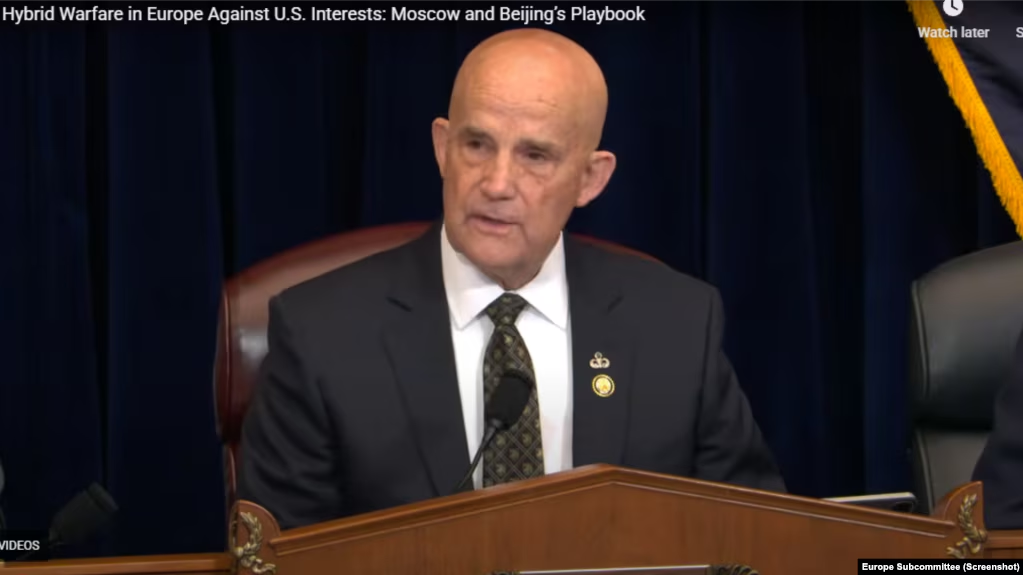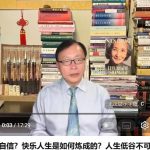2018-01-08

Wu Gan, also known as ‘The Butcher,’ is seen behind bars at police station in Nanchang city, in eastern China’s Jiangxi province, May 19, 2015.
AP Photo
Outspoken human rights activist Wu Gan appealed his eight-year jail term for subversion on Monday, arguing his writings and speeches on behalf of legal abuse victims fell within his civil rights.
Wu, 42, known by his online nickname “The Butcher,” was detained during China’s 2015 crackdown on lawyers and sentenced on Dec. 26 by the Tianjin No. 2 Intermediate People’s Court after being found guilty of “incitement to subvert state power,” the court said in a statement.
Wu’s defense lawyers Yan Xin and Ge Yongxi on Monday filed a written appeal Tianjin Higher People’s Court calling on the court to withdraw the verdict, pronounce Wu not guilty and set him free.
The written appeal says that although Wu had admitted in court to having thoughts of subverting state power, thoughts alone do not constitute a crime, the lawyers said.
The appeal said that Wu’s speeches on social media, published articles, interviews with foreign media, taped lectures, his observation of twelve cases, and his use of performance art all were protected constitutional civil rights, they said.
“His speech and actions do not undermine social security, but have raised civic awareness and the awareness of civil rights among the public. This is an effective way for the public to oversee judicial performance by local governments, resulting in the redress of wrongful convictions,” said the appeal.
The written appeal also argues that state power does not equal the power of a political party; and Chinese people have the right to subvert political power, especially an authoritarian system, it said.
Patrick Poon from Amnesty International told RFA Wu’s case underscore why “it is necessary to withdraw this type of criminal charges” based on subverting state power.
“The Wu Gan Case is a typical case used to clamp down on dissidents with this type of charge. If this crime is not abandoned, more people will be charged with the same crime in the future.”
“This is a good opportunity to get rid of this problematic crime,” added Poon.
When he was sentenced on Dec. 26, the indictment against Wu said he “engaged in a series of actions that incited the subversion of state power and the overthrow of the socialist system, seriously harming national security and social stability.” according to.
“Wu Gan began to develop subversive thoughts after growing dissatisfied with the current political system in this country,” the court said. “He then used online information platforms over a long period of time to send out large volumes of posts attacking the government and the constitutional state system, disseminating his subversive ideas.”
Ge Yongxi said Wu had told the court that he was honored to receive the sentence and that he would “roll up my sleeves and redouble my efforts.”
Ge rejected the verdict and said the harsh sentence was likely linked to the fact that Wu had refused to confess to the charges against him during interrogation and torture at the hands of police.
In a complaint filed to the Tianjin municipal state prosecutor’s office, they wrote that Wu had been interrogated “more than 300 times” since his incarceration began. He had been repeatedly and illegally held in solitary confinement, tortured, and deprived of his right to complain and to access legal advice.
Wu was initially detained by police during a performance protest he titled “Selling my Body to Raise Funds” in Nanchang city in eastern Jiangxi province.
He was trying to help finance a legal defense for Huang Zhiqiang, Fang Chunping, Cheng Fagen, and Cheng Lihe, who were jailed in Jiangxi’s Leping city for robbery, rape, and dismembering a corpse.
The four received suspended death sentences in 2000 that were later commuted to jail terms, but their lawyers and rights activists say their confessions were obtained through torture, and that the men are victims of a miscarriage of justice.











